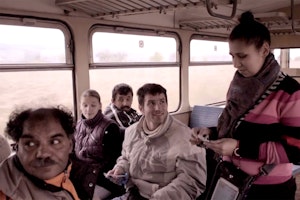People with Developmental Disabilities—Living as Everyone Else Does
-
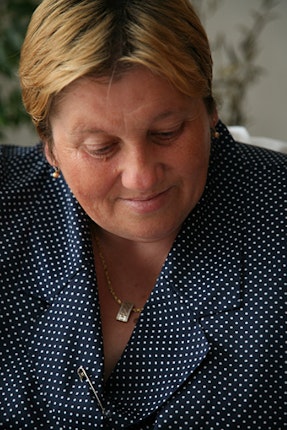
Milica Čičić recalls it raining on the day she and her elder sister entered the Center for Rehabilitation in Croatia, walking past a guardhouse of dirty white stucco, a watchman's eyes, and a statue of a woman cradling a child. Čičić was afraid. Her sister was crying and tried to be reassuring: “It’s a school, Milica. They’ll teach you to read and write.” Čičić was 15 years old on that rainy day in 1977. She was institutionalized for 24 years, and received no schooling she can remember. © Damir Fabianic -
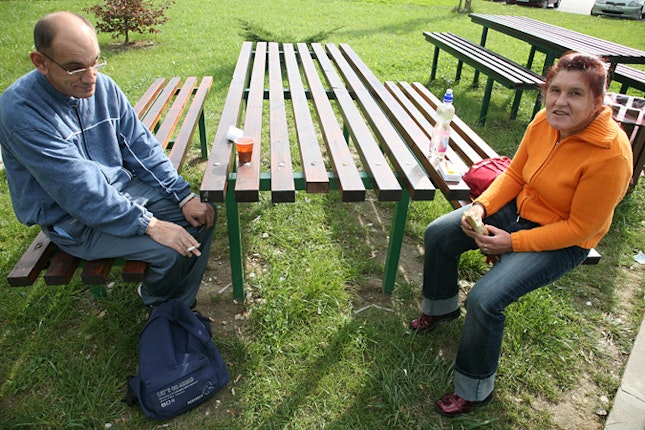
Čičić is one of more than 100 people who have built new lives beyond the center and institutions like it across Croatia. They were assisted by the Association for Promoting Inclusion, an organization supported by the Open Society Mental Health Initiative to work for the reintegration of former residents of state institutions into society. “The people living with the worst disabilities will need more assistance in a community setting than the others,” Borka Teodorović, who manages the association, says, “but the community can and should bear the costs, because the alternative deprives them of their human rights.” © Damir Fabianic -
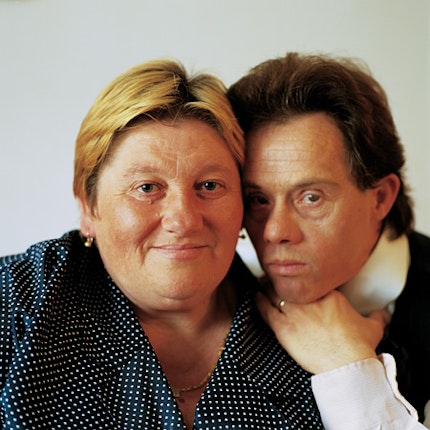
Čičić (shown here with her husband Božidar) remembers a team from the Association for Promoting Inclusion asking whether she wanted to leave the Center for Rehabilitation: “I understood that when I came out I would have to try hard but that I could live as everyone else does,” she says. In the center, “they treated us all as if we were children. They used to call us children. But we are not children. I am a grown woman. But there any relationship with a man was considered shameful.” © Damir Fabianic -
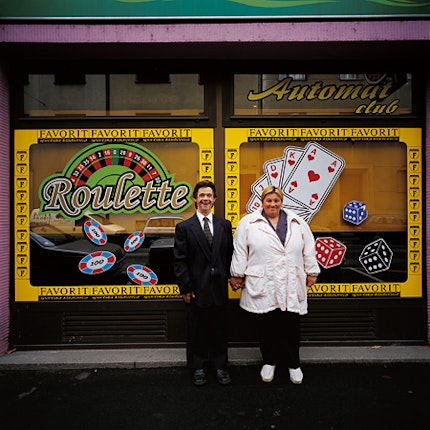
Čičič's integration proceeded in steps. At first, she shared an apartment with a round-the-clock attendant. Later, she married and moved into a flat of her own. A social worker makes periodic visits. An assistant takes Čičić and other members of the program to shop in groups. Her husband, another former resident of the Center for Rehabilitation, works for a company placing labels on retail body-care products. Čičić handles the cooking: “I like to make everything, fried chicken, soup, strudel, eggs. And my husband is very satisfied.” © Damir Fabianic -
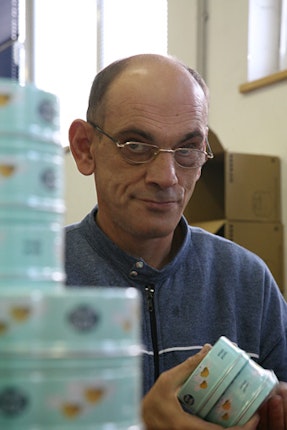
Croatia has about 4,500 developmentally disabled people in institutions. Zdenka Petrović is president of South Eastern Europe’s first nongovernmental organization run by developmentally disabled people dedicated to demanding respect for their human rights. Petrović also lived in an institution for 24 years. Now, after eight years living outside, she has her own apartment, work, friends, and relationships with men. “I buy what I want,” she says. “I pay my own rent. They always told me I was incapable of working. They said we were of no use to anyone else.” © Damir Fabianic -
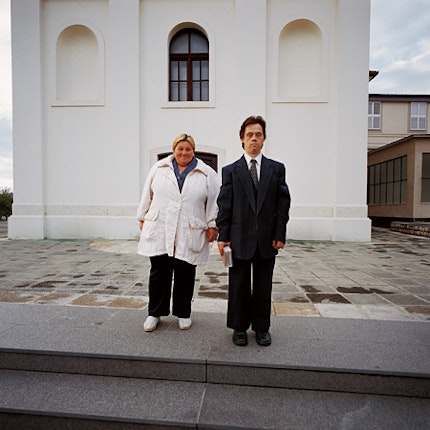
Someday—she hopes it is soon—Petrović will walk through the front gates of the Center for Rehabilitation with Čičić and other former residents. Inside, Petrović will approach residents one at a time and encourage them to leave. “I’ll ask them whether they would like to work and be paid for it. I’ll ask them if they want friends, men and women friends. I’ll explain that, once they’re outside, they’ll have their own friends, they’ll decide what to do, what to eat, when to wake up, when to go to bed.”“People are afraid of what they do not know.” © Damir Fabianic
Institutionalized for decades, Milica Čičić is one of thousands of Croatians with developmental disabilities being reintegrated into society, with the help of an Open Society Foundations grantee. See the slideshow above to learn more.
Topics

